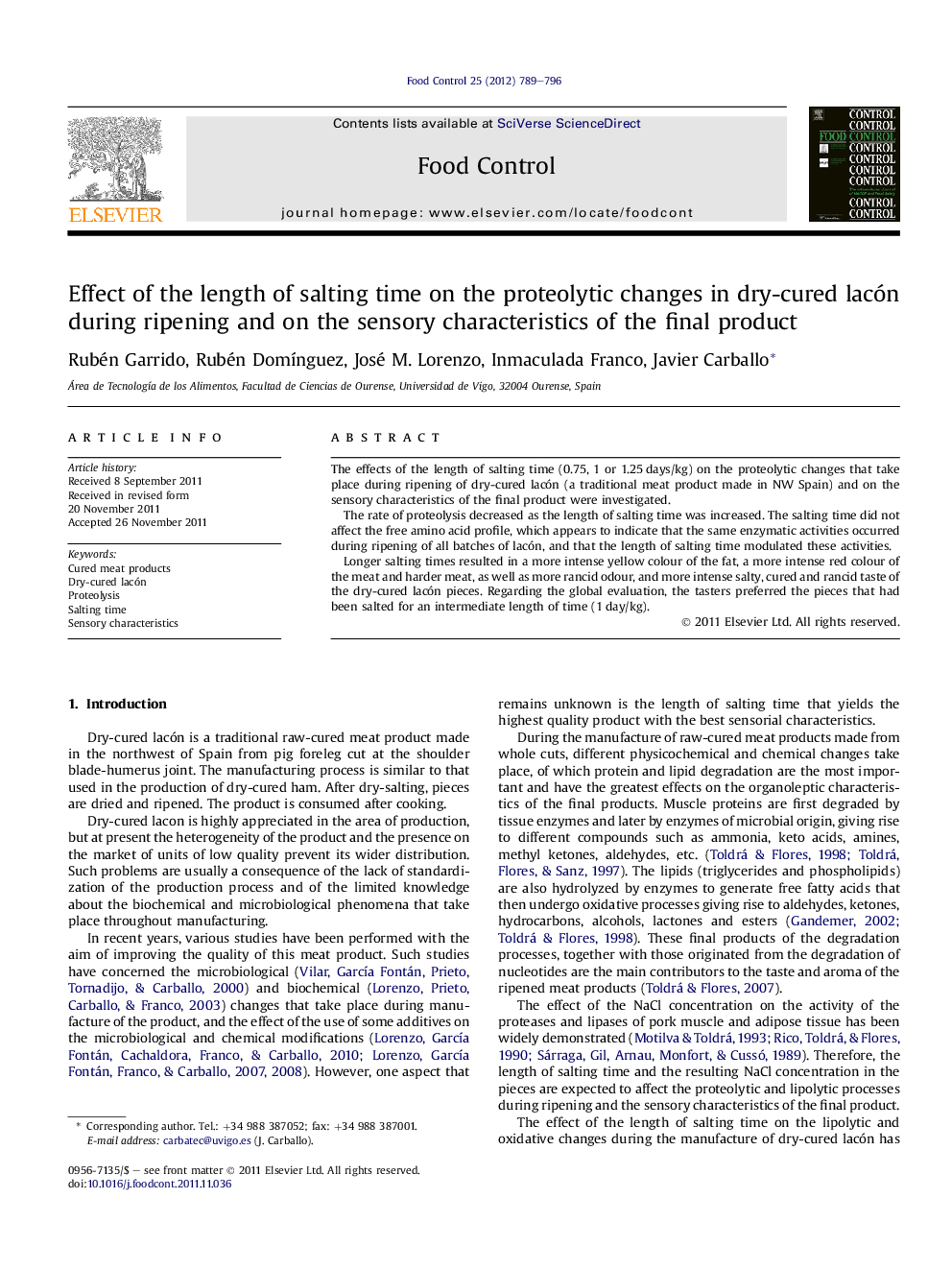| Article ID | Journal | Published Year | Pages | File Type |
|---|---|---|---|---|
| 6393690 | Food Control | 2012 | 8 Pages |
The effects of the length of salting time (0.75, 1 or 1.25Â days/kg) on the proteolytic changes that take place during ripening of dry-cured lacón (a traditional meat product made in NW Spain) and on the sensory characteristics of the final product were investigated.The rate of proteolysis decreased as the length of salting time was increased. The salting time did not affect the free amino acid profile, which appears to indicate that the same enzymatic activities occurred during ripening of all batches of lacón, and that the length of salting time modulated these activities.Longer salting times resulted in a more intense yellow colour of the fat, a more intense red colour of the meat and harder meat, as well as more rancid odour, and more intense salty, cured and rancid taste of the dry-cured lacón pieces. Regarding the global evaluation, the tasters preferred the pieces that had been salted for an intermediate length of time (1Â day/kg).
⺠The article deals on the manufacturing technology of lacón, a Spanish meat product. ⺠The effect of salting time on the proteolysis and sensory attributes was studied. ⺠The rate of proteolysis decreased as the length of salting time was increased. ⺠The salting time did not affect the free amino acid profile of the product. ⺠The tasters preferred the product that had been salted for 1 day/kg.
